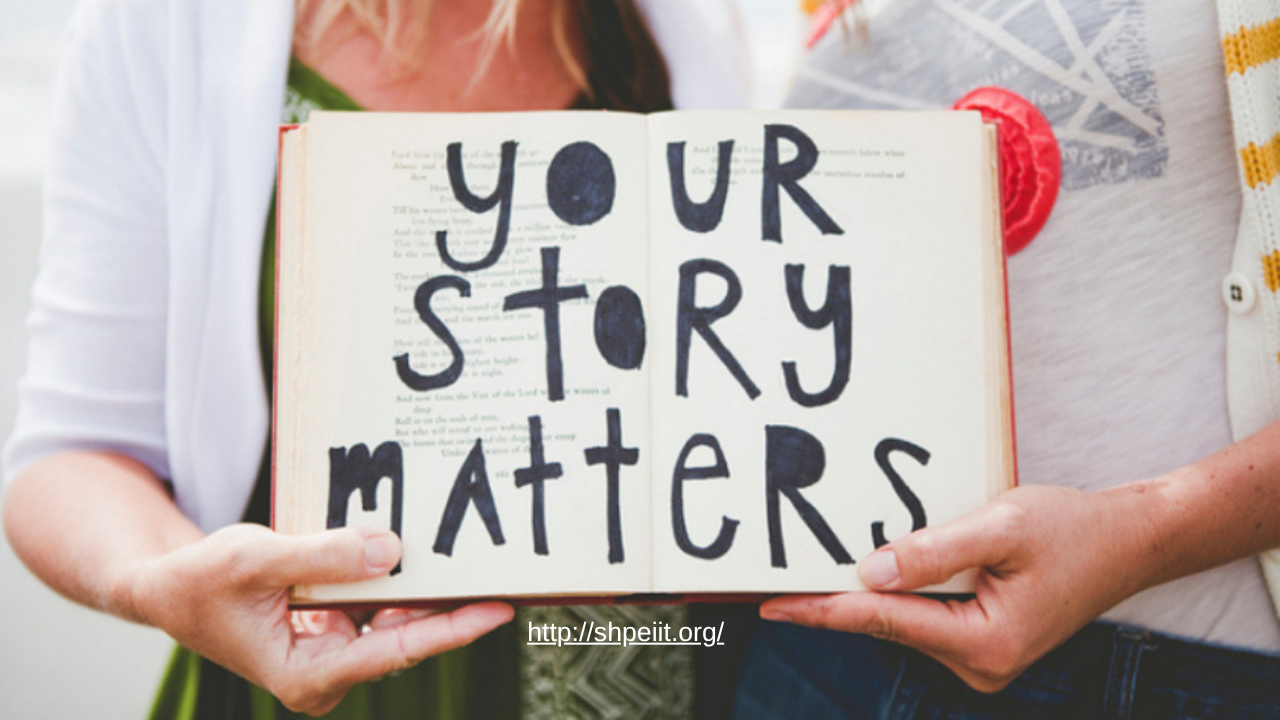The Life of a Professional Writer
The Rewards and Challenges of Professional Writing
When Words Become Medicine: Using Writing to Heal from Addiction
Addiction recovery is often described as a journey that requires courage, honesty, and a willingness to confront difficult emotions. While clinical treatment and professional support play essential roles, many people discover another powerful healing tool along the way: writing. Whether through journaling, storytelling, prayer reflections, or letters never meant to be sent, writing gives individuals a safe space to release emotional weight and rebuild a sense of personal clarity.
At SHPEIIT, we believe that healing happens on multiple levels. Our holistic and faith-based programs support the mind, body, and spirit, helping individuals regain balance and purpose. Writing aligns naturally with this approach because it allows people to reflect, process, and express their inner experiences in a healthy and meaningful way.
How Writing Supports Emotional Healing
Gaining Clarity Through Reflection
Addiction often creates emotional confusion. People may carry feelings they cannot easily express in conversation. Writing offers a private outlet to release these thoughts without fear of judgment. By placing emotions on the page, individuals begin to understand what they are feeling and why those feelings developed.
This clarity often brings relief. It helps individuals recognize harmful patterns, unresolved trauma, and the internal conflicts that may have contributed to substance use. Writing becomes a therapeutic mirror that reveals truth and opens the door to healing.
Reducing Stress and Emotional Overload
Recovery can be overwhelming. There are new responsibilities, shifting relationships, and constant internal changes. Writing provides a healthy way to manage these pressures. Even ten minutes of journaling can reduce stress, lower emotional tension, and improve mood.
Many clients at SHPEIIT integrate writing into their daily routine as a form of grounding. It helps them remain connected to their goals while navigating the emotional ups and downs of recovery.
Writing as a Pathway to Spiritual Renewal
Strengthening Faith and Inner Connection
For individuals who draw strength from spirituality, writing can become a powerful form of prayer or reflection. Gratitude journaling, spiritual letters, and personal meditations help people reconnect with hope and faith. This is especially meaningful within SHPEIIT’s faith-based approach, which encourages healing through both clinical support and spiritual renewal.
Writing helps individuals feel guided, supported, and grounded as they rebuild their lives with purpose.
Transforming Trauma Into Testimony
Many people find that writing allows them to reclaim their story. Instead of viewing their past as a source of shame, they begin to see it as a testimony of strength. While sharing is always optional, some choose to read their reflections in group settings or incorporate them into their long-term recovery goals.
This transformation from silence to expression reduces stigma, strengthens confidence, and reminds individuals that their experiences can inspire others.
Practical Ways to Use Writing in Recovery
Journaling for Daily Check-Ins
Short daily entries help individuals track progress, identify triggers, and celebrate personal victories.
Writing Letters for Emotional Release
Writing letters to loved ones, past versions of oneself, or even to addiction itself can be deeply therapeutic, even if the letters are never shared.
Creative Expression
Poetry, stories, or memoir-style reflections allow individuals to explore emotions in imaginative ways that promote deep healing.
Conclusion: Your Words Can Guide You Forward
Recovery requires strength, patience, and support, but no one has to travel this road alone. Writing offers a powerful way to process emotions, release burdens, and discover renewed hope. It is a tool that heals from the inside out and supports long-term growth.
If you or someone you care about is preparing for recovery or seeking support, SHPEIIT is here to help. Our compassionate, client-centered team provides holistic, faith-based, and individualized care that meets you exactly where you are. Reach out today and take the next step toward healing, purpose, and lasting freedom.
From Addiction to Authorship: How Sharing Your Story Supports Recovery
 Turning Personal Struggles into Strength
Turning Personal Struggles into Strength
Addiction is often accompanied by silence, shame, and isolation. Yet, one of the most powerful steps toward recovery is finding the courage to share your story. Writing about addiction allows individuals to process emotions, reflect on their journey, and inspire others who may be facing similar challenges. By transforming personal struggles into narratives of resilience, individuals reclaim their voice and strengthen their path to lasting recovery.
At SHPEIIT, we understand that recovery is more than abstaining from substances. True healing encompasses mental, emotional, and spiritual growth. Through our holistic, faith-based, and individualized programs, we encourage clients to explore creative outlets such as writing, which can complement therapy and support long-term sobriety.
Why Sharing Your Story Matters
Breaking the Silence and Reducing Stigma
Addiction carries significant social stigma, which can prevent individuals from seeking help. Sharing your story helps dismantle misconceptions by showing that addiction is a human struggle, not a moral failing. Writing honestly about your experiences provides insight, fosters empathy, and encourages others to reach out for help without shame.
Reclaiming Identity and Control
Addiction can often leave individuals feeling powerless and defined by their struggles. Writing is a tool to regain control over your narrative. When you document your journey, you decide how your story is told. This empowerment supports self-esteem, builds confidence, and reinforces the personal growth achieved throughout recovery.
Inspiring Hope in Others
Your story can be a beacon of hope. For those still struggling, reading authentic accounts of recovery demonstrates that change is possible. Sharing experiences, challenges, and victories validates the feelings of others while motivating them to take the first step toward healing.
The Therapeutic Benefits of Writing
Emotional Processing and Reflection
Writing about your experiences allows for deep emotional processing. Journaling or crafting narratives helps individuals organize thoughts, understand triggers, and express complex feelings that may be difficult to voice aloud. This reflection fosters clarity, reduces stress, and strengthens emotional resilience.
Encouraging Mindfulness and Self-Awareness
Documenting recovery experiences promotes mindfulness by keeping individuals engaged with their present thoughts and feelings. It encourages self-awareness, helping people identify patterns, celebrate progress, and make informed choices that support continued growth.
Supporting Spiritual and Holistic Healing
At SHPEIIT, we view recovery as a journey of mind, body, and spirit. Writing can integrate seamlessly into holistic practices, allowing individuals to explore faith, gratitude, and personal values. These reflective practices nurture inner peace and reinforce the spiritual component of lasting recovery.
Practical Tips for Getting Started
-
Start Small: Begin with a few sentences each day or simple prompts like “What am I grateful for today?”
-
Write Honestly: Focus on feelings and experiences rather than grammar or style.
-
Use Prompts: Questions like “What lessons has recovery taught me?” or “What challenges have I overcome?” can guide writing.
-
Seek Support: Share your writing with a therapist, mentor, or support group if it feels safe and helpful.
These strategies create structure while maintaining flexibility, making writing a sustainable part of the recovery journey.
Your Story is Powerful
Sharing your story is more than a creative exercise; it is an act of healing, empowerment, and connection. Writing about addiction allows you to process your past, celebrate your growth, and inspire others to seek help.
If you or a loved one is struggling with addiction, SHPEIIT provides compassionate, faith-based, and personalized treatment programs designed to support emotional, mental, and spiritual recovery. Reach out today and start turning your journey from struggle to strength—your story has the power to heal both yourself and others.
Writing Your Way Out of Addiction: How the Page Becomes a Healing Space
 Finding Freedom Through Words
Finding Freedom Through Words
Recovery from addiction is a deeply personal journey. It takes courage, honesty, and the willingness to face painful memories and emotions. For many, one of the most powerful ways to begin this process is through writing. Putting words to experiences helps people make sense of their past, release emotional weight, and discover new meaning in their story. Writing becomes more than an act of expression—it becomes a pathway to healing.
At SHPEIIT, we understand that recovery involves more than breaking physical dependence. True healing addresses the whole person: body, mind, and spirit. That’s why our holistic and faith-based programs encourage creative and reflective practices, such as journaling and storytelling, to complement professional addiction treatment. Writing offers a space where pain can transform into purpose, and silence can give way to self-discovery.
The Healing Power of Writing in Recovery
Turning Pain Into Progress
Addiction often leaves behind feelings of guilt, shame, and loss. These emotions can linger long after treatment begins, making it difficult to move forward. Writing allows individuals to confront these feelings safely and privately. By putting their experiences on paper, they can gain clarity, release emotional tension, and begin to understand their struggles in a new light.
This process turns pain into progress. The simple act of writing helps organize thoughts, reveal triggers, and provide a sense of control in moments of uncertainty. Over time, journaling can become a steady companion through recovery—a personal record of growth, insight, and resilience.
Building Emotional Awareness
Writing fosters emotional awareness, which is essential for long-term sobriety. When people take time to reflect on what they feel and why they feel it, they become better equipped to manage stress, avoid relapse, and communicate their needs effectively.
In SHPEIIT’s compassionate environment, writing exercises can work alongside therapy and counseling to deepen self-understanding. Whether it’s writing letters to one’s past self, documenting daily gratitude, or expressing spiritual reflections, each word written brings the individual closer to emotional balance and peace.
Writing as a Spiritual Practice
Faith, Reflection, and Renewal
In faith-based recovery, writing can also become a spiritual practice. Many people find that journaling prayers, gratitude lists, or moments of reflection helps them reconnect with their faith and find comfort in God’s presence. This connection strengthens the recovery journey, reminding individuals that they are never alone in their struggles.
Writing offers a quiet moment for reflection and renewal. It helps individuals focus on hope, forgiveness, and growth. Each entry can serve as a reminder that healing is possible and that every story, no matter how difficult, can be rewritten with grace and strength.
Practical Ways to Use Writing in Recovery
Journaling Prompts to Begin Healing
For those beginning their recovery journey, writing may feel intimidating. The good news is that there’s no right or wrong way to start. Here are a few simple prompts that can help:
-
What emotions am I feeling right now, and why?
-
What are three things I am grateful for today?
-
What lessons has recovery taught me so far?
-
How can I show kindness to myself this week?
These small steps can create meaningful breakthroughs. Over time, journaling becomes a healing habit—one that nurtures self-awareness, reduces anxiety, and supports mental health recovery.
Your Story Matters
Writing your way out of addiction is not about being a perfect writer. It’s about being honest, open, and brave enough to face the truth and find healing through words. Each page written is a step forward—a declaration that your story is not over, and that recovery is possible.
If you or someone you love is struggling with addiction, SHPEIIT is here to help. Our holistic, faith-based, and individualized programs combine evidence-based care with compassionate support to guide you toward lasting healing. Reach out today and begin writing the next chapter of your life—a chapter defined by hope, purpose, and freedom.